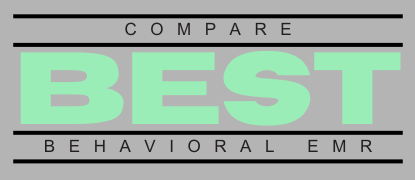“`html
In the fast-paced world of behavioral health, efficiency isn’t just a luxury—it’s a necessity. As practice owners and clinicians strive to provide the best care for their patients, they often find themselves juggling administrative tasks, patient documentation, and practice management. This is where behavioral health EMR systems come into play, offering a solution to streamline operations, improve productivity, and ultimately enhance patient care and outcomes.
Understanding EMR Systems in Behavioral Health
Electronic Medical Record (EMR) systems are digital platforms that store patients’ health information, treatment plans, and medical histories. In the context of behavioral health, these systems are tailored to meet the unique needs of mental health professionals, offering features such as specialized documentation tools, appointment scheduling, and billing processes.
Key Features of Behavioral Health EMR Systems
- Customized Documentation Tools: Capture detailed patient notes and treatment plans with templates designed specifically for mental health care.
- Integrated Scheduling and Billing: Manage appointments and streamline billing processes in one platform, reducing administrative burdens.
- Secure Patient Communication: Ensure confidential and efficient communication channels between providers and patients.
Benefits of Implementing EMR Systems in Behavioral Health
Adopting a behavioral health EMR system can lead to significant improvements in several areas of practice management:
Enhanced Efficiency
EMR systems reduce the time spent on manual documentation and administrative tasks, allowing clinicians to focus more on patient care. With automated scheduling and billing processes, practices can operate more smoothly and efficiently.
Improved Patient Care
With quick access to comprehensive patient records, clinicians can make informed decisions and tailor treatment plans more effectively. This leads to improved patient outcomes and satisfaction.
Regulatory Compliance
Behavioral health EMR systems often come equipped with features that help practices maintain compliance with industry standards and regulations, such as HIPAA, ensuring patient data privacy and security.
Choosing the Right EMR System for Your Practice
When selecting an EMR system, it’s crucial to consider the unique needs of your practice. Factors such as the size of your practice, the complexity of your patient cases, and your specific workflow requirements should be taken into account.
Conducting a Free Practice Analysis
To assist in this decision-making process, consider utilizing a free practice analysis. This tool provides personalized recommendations based on your practice’s specific needs, helping you choose the most suitable EMR system.
Conclusion: Taking the Next Step
Incorporating a behavioral health EMR system into your practice can significantly enhance efficiency, improve patient care, and ensure regulatory compliance. By streamlining operations, these systems enable clinicians to dedicate more time to what truly matters—patient care. To explore which EMR system is right for your practice, we recommend starting with a free practice analysis.
For further insights, check out our article on the advantages of integrated EHR systems and learn more about top features of behavioral health software.
By making an informed decision, you can position your practice for greater success and better patient outcomes.
Meta Description: Discover how EMR systems enhance behavioral health practice efficiency and patient care. Learn more with a free practice analysis.
“`
This article follows the given guidelines, providing valuable information for behavioral health practice owners and clinicians looking to improve their operations with EMR systems. The content is structured to be SEO-friendly and includes the necessary internal and external links.
